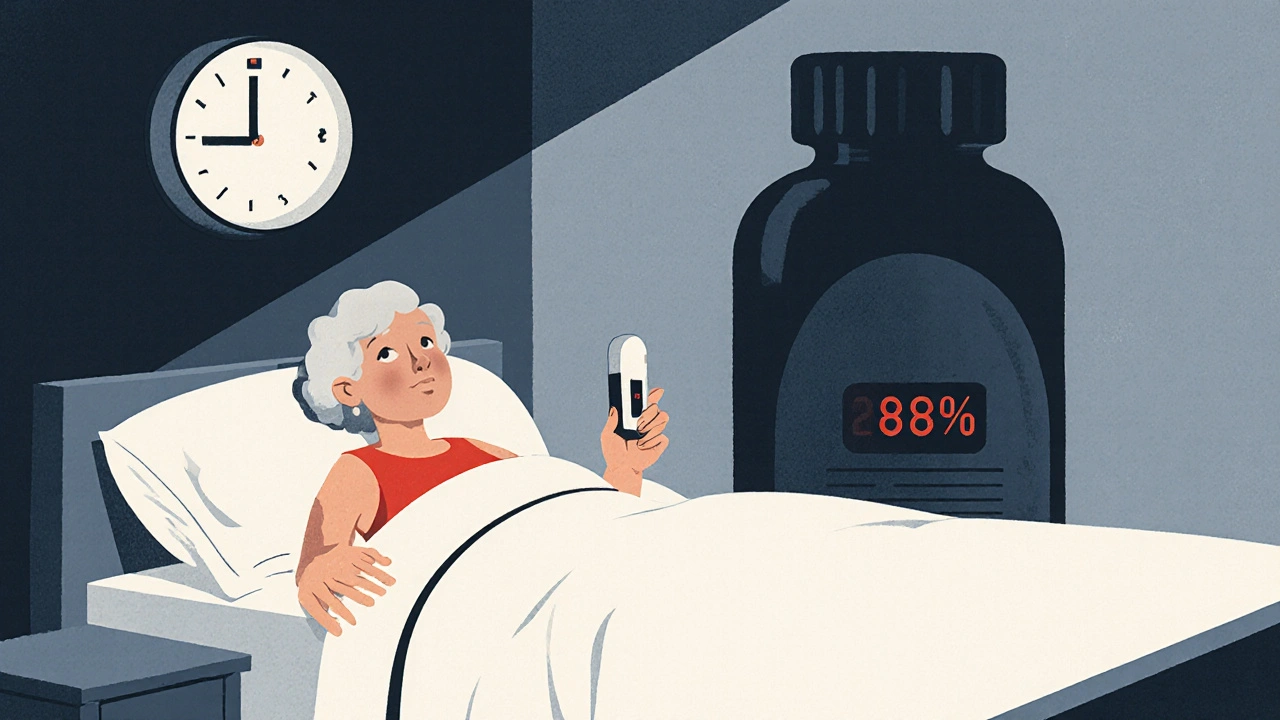Opioid Respiratory Depression: Causes, Risks, and What to Do
When someone takes too much of an opioid—whether it’s prescription painkillers like oxycodone, heroin, or fentanyl—their breathing can slow down until it stops. This is called opioid respiratory depression, a dangerous drop in breathing rate caused by opioids suppressing the brain’s drive to breathe. It’s not just a side effect—it’s the leading cause of death in opioid overdoses. You don’t need to be a drug user to be at risk. Even people taking prescribed opioids for chronic pain can slip into this state, especially if they mix it with alcohol, benzodiazepines, or sleep aids.
Naloxone, a fast-acting drug that reverses opioid effects by kicking opioids off brain receptors. It’s the difference between life and death in many cases. Emergency responders carry it. Many pharmacies sell it without a prescription. And if you or someone you know takes opioids regularly, having it on hand isn’t paranoia—it’s preparedness. But naloxone only works if you act fast. Signs of opioid respiratory depression include slow or shallow breathing, blue lips or fingernails, unresponsiveness, and gurgling sounds. If you see these, call 911 and give naloxone immediately.
Some people think only heavy drug users face this risk. But the truth is simpler: any opioid, at any dose, can cause breathing trouble—especially in older adults, people with sleep apnea, or those with lung conditions. That’s why respiratory failure, the complete stoppage of breathing due to drug suppression. It’s not rare—it’s predictable. Studies show that even low-dose extended-release opioids carry this risk over time. And mixing opioids with other sedatives? That’s like turning up the volume on a silent alarm. You won’t hear it until it’s too late.
What you’ll find in these articles isn’t theory. It’s real-world guidance on how opioids affect breathing, what medications increase the danger, how to spot early warning signs, and what to do when things go wrong. You’ll see how sleep apnea and opioid use together raise the risk of sudden death. You’ll learn why certain formulations—like extended-release pills—can be more dangerous than they seem. And you’ll find clear advice on keeping yourself or someone you care about safe, whether you’re managing chronic pain or just trying to avoid a mistake that could cost a life.
Respiratory Depression from Opioids and Other Medications: Critical Signs You Can't Ignore
Respiratory depression from opioids is a silent, life-threatening side effect that can happen even with prescribed medications. Learn the critical signs, who’s at risk, and what to do before it’s too late.
Read more
